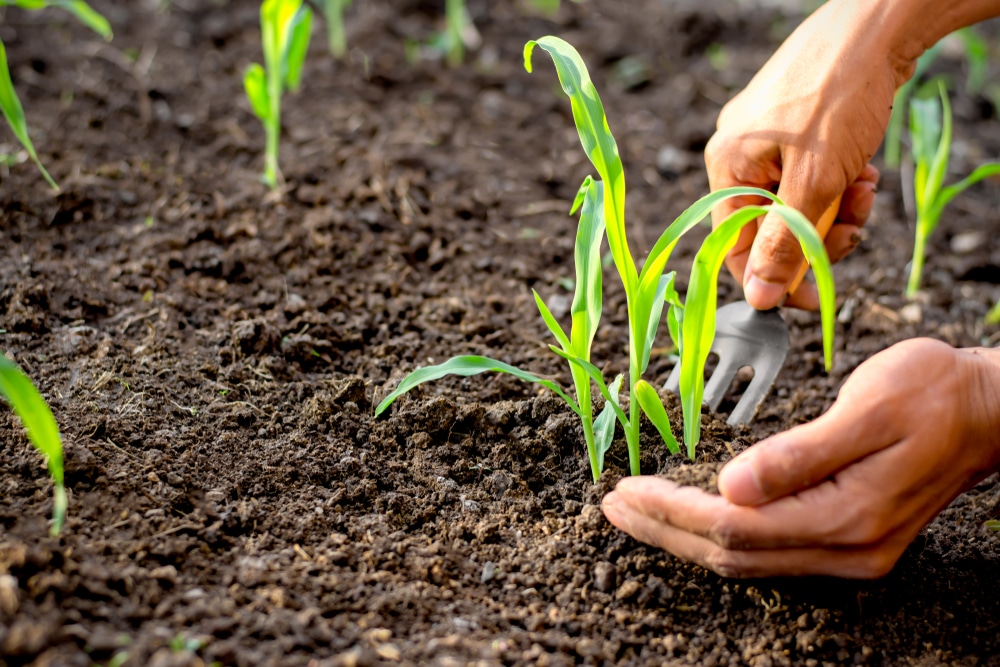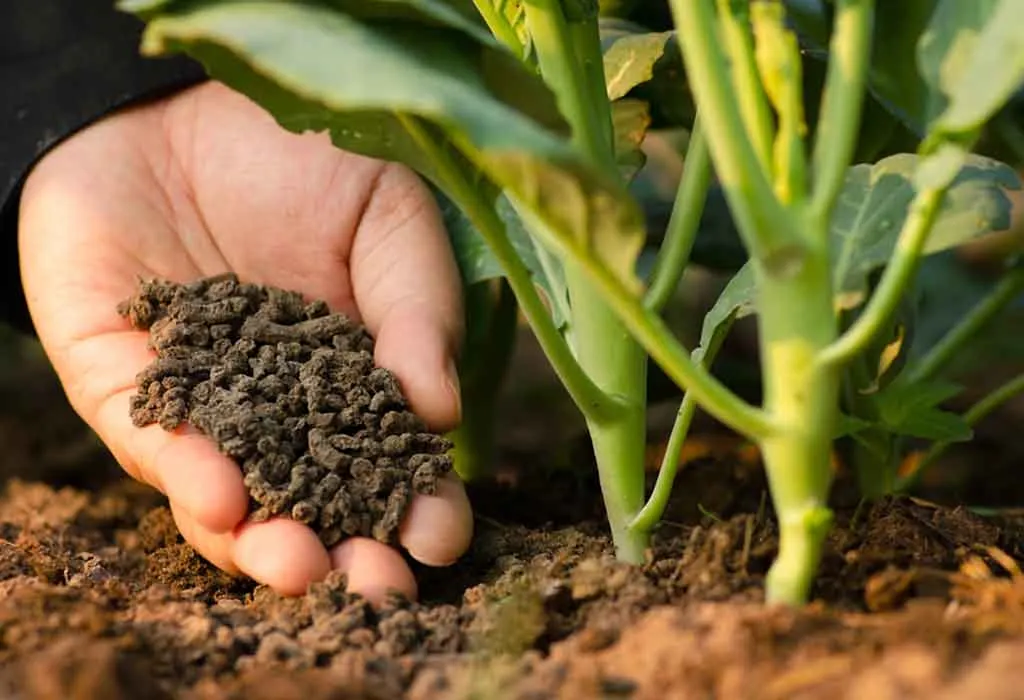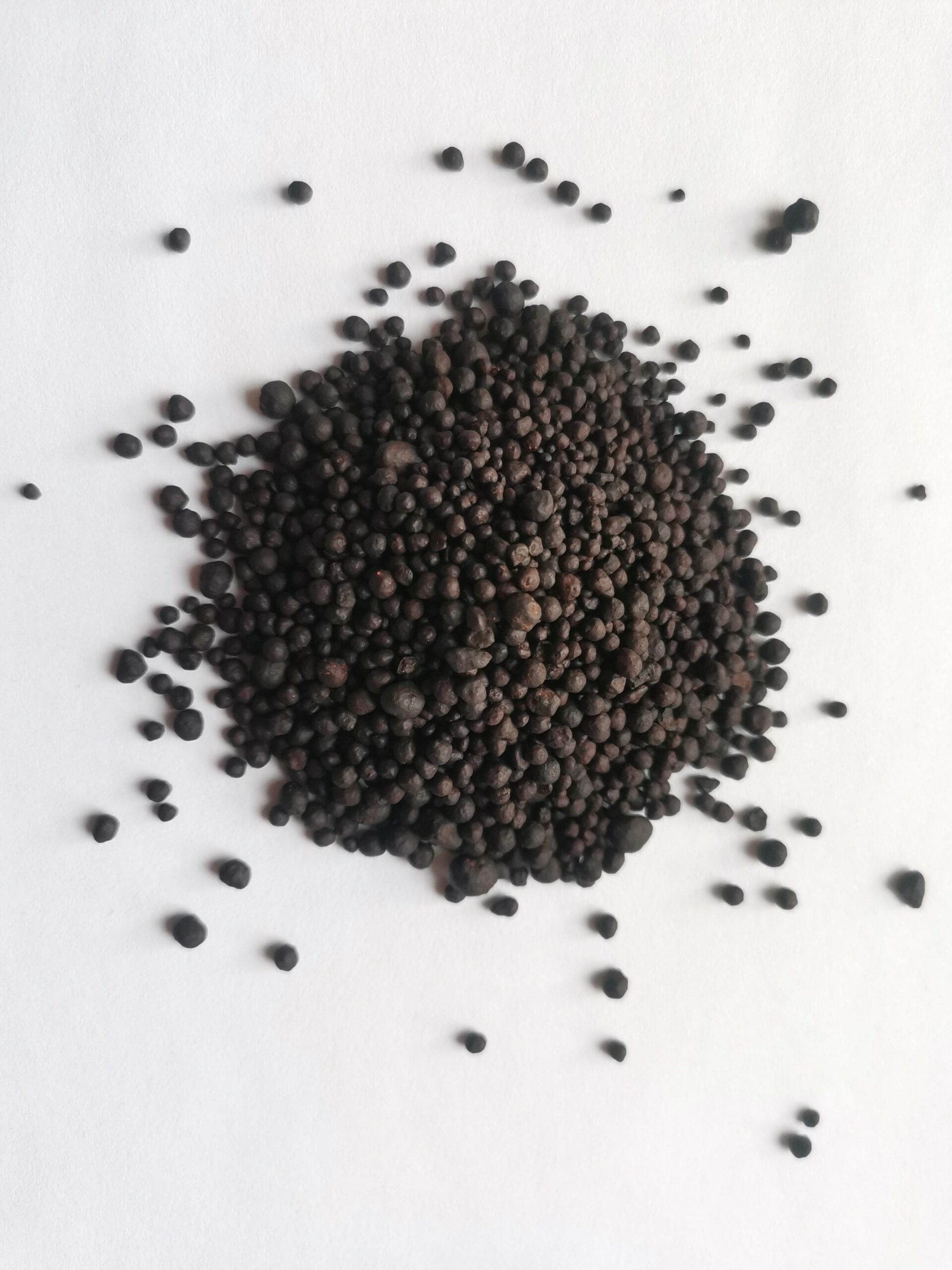Introduction to Organic Fertilizers
Organic fertilizers have become a key factor in agricultural sustainability – especially for staple crops including corn. Organic fertilizers are obtained solely from natural sources. They include remnants of plant residues, animal manure and vegetation that has been composted elsewhere. Organic fertilizers do not contaminate the soil with a multitude of chemicals as synthetic fertilizers do. If applied over long periods of time, they do not damage the quality of soil as chemicals do, and they do not contaminate rivers and lakes as chemicals do.
Sustainable agriculture adopts methods that neither drain nature’s resources nor disrupt its cycles, but instead improve environmental quality for future generations. Organic fertilizer for corn is integral here: to retain fertility of the soil and maintain the health of the surrounding ecosystem. As Jane Goodall, a renowned environmentalist, has pointed out: ‘Farming practices must move towards biodiversity and ecological balance. These are both qualities biologically-produced fertilizers provide, fostering a living soil that yields plentiful and nutrient rich crops.
Using organic fertilizer to treat the soil, increase soil structure, dryness and biodiversity can prepare agricultural lands for longer-term sustainability. Such a broad scene-setting puts the following discussion in the perspective of the reader. The discussion reveals a variety of advantages of using organic fertilizer in corn production. By increasing yield and protecting the world’s ecological balance at the same time, organic fertilizers show great promise as a renewable cropenhancer.
Benefits of Organic Fertilizer for Corn
It offers several agronomic advantage working on yield and enhancing concomitantly the environmental sustainability. First of all, the use of organic fertilizer increases the carbon content in the soil. This has several outcomes, but the first that must be mentioned is the improvement of soil health and structure. Organic fertilizer provides organic matter to the soil, improving its structure. This healthy structure helps the soil to retain water as well as nutrients, facilitating their movement to the plants that grow on them. Emma Richardson, a research scientist specialising in soil science, says: ‘Organic matter helps to build soil structure like a sponge – retaining water and nutrients to give a more resilient foundation for plants like corn.
Another is that the corn crops experience better water retention and aeration. Corn crops generally require massive amounts of water. The increased water-holding capacity of the soil helps to reduce frequency of watering, thereby conserving water and reducing the overall impacts of the crop to the environment. The increased aeration in the organically fertilised soils also better facilitates root growth and nutrient uptake.
By far, maintaining the slow-release property of organic fertilizers is the most vital advantage. As organic fertilizers decompose slowly through their organic sustenance, the nutrients they carry is cycled in a relatively homogeneous fashion over a lengthy period. This sustains a steady supply which complements the natural growth cycle of corn: it is, as the plant physiologist Dr Harold Franklin put it, ‘available when the corn is using it, not when it’s not’.
Above all, this maintains a steady supply, which prevents the overload of nutrients that otherwise would be quickly leached out at once, overwhelming the plants and washing away as polluted runoff. ‘The slow-release property of the organics mean the nutrients are available over the cropping period, at the time plants really need them, as opposed to leaching,’ Ronald Myers, a former senior official at the US Department of Agriculture, once said.
These enhancements, taken together, improve the corn growth environment, meaning it makes the corn healthier and, perhaps, higher-yielding, all the while helping to promote the general goals of sustainable agriculture.

Types of Organic Fertilizers Suitable for Corn
The most important step for doing is to choose suitable kind of organic fertilizer for growing corn. This will feed soil properly and gets higher output for corn crops. There are kind of organic fertilizers have nice effect for corn cultivation, due to their nutrient composition and its ability to improve soils.
Composted manure is the organic fertilizer most highly valued by farmers growing corn. It provides nitrogen, phosphorus and potassium, the three nutrients that corn needs in abundance. Good quality composted manure also improves soil structure, increases water infiltration and retention, and stimulates the proliferation of microbes that underpin fertile soils and healthy plants. As Dr Susan Mitchell, a key agricultural adviser in western Maryland, explains: ‘Corn responds best to composted manure since this not only provides balanced fertility, but also amends the soil, a foundational consideration for any corn production programme.’
Green manure crops are another great option for corn fields. Green manures are cover crops such as clover and vetch, that are planted, grown and tilled back into the soil for decomposition. As they decay, green manures release nutrients back into the soil and increased overall soil structure and organic matter. ‘Incorporating green manures is one of those “win-win” strategies; it improves soil fertility and structure while reducing erosion and nutrient runoff,’ says Dr Mitchell.
Lastly, fish emulsions and seaweed extracts provide quick nutrients and trace minerals to fulfil peak nutrient requirements for a high-yielding crop like corn. When an expert at a show stops to tell me about how fish emulsions and seaweed extracts provide quick nutrients, too, it confirms my belief in how important this kind of fertilizer is when applying nutrients quickly to meet the demand of the crop’s rapid-growth cycle. Especially in a corn crop, if the plant is absorbing nutrients from the soil quickly to support fast growth, fish screens and seaweed extracts can rapidly provide essential nutrients.
Leo Barnes, a marine biologist who specialises in organic fertilizers, comments: ‘Fish emulsions and seaweed extracts provide a good spike of nutrition because they’re very quickly available to plants. With organic corn production, when you really need plants to take up nutrients quickly, this can make a huge difference.
But each plays a distinct part in the ecosystem of corn production, creating a vibrant, sustainable agricultural landscape that improves earthworm populations, restores soil quality and feeds fertility all in an environmentally sound way.
Application Techniques for Optimal Results
In case of organic fertilizer for corn, you have to prepare schemes of spreading ingredients to more efficiently increase the crops on corn.There are numerous best practices in this case, which could drastically increase efficiency of organic fertilizers on corn fields.
To apply organic fertilizer properly, it helps to know what nutrients are present, and when they will become available These best practices are backed by Dr Lisa Hamilton, an Ohio agronomist. She explains: ‘Farmers need to match the organic fertilizer application rate to the needs of their crop for the specific growing stage of the corn. Plants are going to use the nutrients at different times, so nutrients have to become available when they need them.’
Organic fertilizers also require thoughtful application from a seasonal perspective. The first application – ideally, before planting – needs to be incorporated into the soil to be available for seed emergence and early crop growth. Subsequent applications should be scheduled to coincide with key growth stages for flowering and grain filling. ‘Timing those applications to coincide with the growth stages allows that nitrogen to be used efficiently by the crop and not just wasted,’ Hamilton explained.
This includes, how frequently the fertilizer is applied, and the method used to apply it. Splitting the fertilizer application into two or three mini-doses over the growing season is beneficial in many cases, especially for corn crops. This allows nutrients to be delivered in small doses over time, reducing the effect of runoff on waterways while providing a continuous source of nutrients. It also reduces the chances of insects and pests that thrive in fertilizer-rich growing environments, such as the armyworm, blowing onto your crop.
Finally, as with any use or application of plant nutrients, the quantities of fertilizer products used must be measured and, if possible, adjusted according to results from soil tests. Soil testing is the key to good fertilizer management, as it will give a farmer an accurate indication of existing nutrient levels and information on pH in soil. ‘Soil testing is essential for those who want to optimise fertilizer use and reduce the application of excessive nutrients,’ says Dr Hamilton.
Using these tactical application practices, farmers can help organic fertilizers to work better, thereby ensuring their corn does well, and at the same time allowing their farming to remain sustainable.
Challenges and Considerations in Using Organic Fertilizer for Corn
While the use of organic fertilizer has numerous benefits, reasons for not using organic practices, and challenges to long-term fertility, are numerous. The benefits of organic fertilisation planning are enhanced by taking steps to address these challenges.
Another challenge for famers making the switch to organic fertilizer is that the immediate availability of plant-available nutrients after application is likely less than the availability of synthetic fertilizers at the point of application. Organic fertilizers have relatively low nutrient concentrations, and nutrients become accessible from the fertilizer when they are mineralised by soil microorganisms into forms plants can use. For the most part, organic fertilizers are beneficial over time but they aren’t beneficial immediately.
Long-term soil fertility from organic inputs is also an important factor. Organic fertilizers enhance soil structure and increase soil organic matter over time, both of which can help improve soil fertility – but only with a sustained programme of additions and careful management. ‘Maintaining good soil fertility with organic fertilizers requires a real commitment to a culture of soil health through the regular additions of organic matter and good crop rotation and cover cropping habits,’ says Dr Foster.
Also, for some farmers, the cost and availability of organic fertilizer can pose a particular problem. Depending on the context, organic inputs may be more expensive or less readily available than their chemical counterparts, and this can inhibit adoption. Overcoming this barrier may be achieved by building the capacity of local sources of organic fertilizer, such as on-farm composting or community composting programmes, which can reduce cost and improve supply.
Finally, regulations around organic farming can also present obstacles. Farmers new to organic production may face difficulty with certification requirements, keeping up with and complying with regulations of the National Organic Program, and record keeping. Cooperative extensions and organic farming associations can help farmers with these tasks as well as how to incorporate OMms into their farm systems.
Meeting them will require investment in education, community cooperation and procedures that support small sustainable practices, and continue to respect farmers as stewards of the land.

Future Trends and Innovations in Organic Fertilization for Corn
Given the promising prospects for research on and technological innovations of organic fertilizer for corn, it can be predicted that the realisation of million acres of organic fertilised corn is not far from now. With these developments, it’s also likely that there will be more and more organic farms because they can promise economic advantages and breakthroughs as well as a healthier environment.
A newer, evolving area of research on organic fertilisation concerns the development of more efficient and nutrient-rich organic fertilizers. This includes improved and shortened composting techniques to increase nutrient content, as well as microbial inoculants that aid in making nutrients available for the corn crop. Dr Benjamin Clarke, an agricultural technologist at the Center for a Livable Future, explains: ‘The future is in the name: advancing and innovating organic fertilizer through biotechnology to make it more efficient and nutrient-rich, and targeted toward the needs of corn.
The economic benefits of the transition to organic fertilizers are real. Over time, as demand for organic products grows, farmers supplying corn fertilised by organic means can access premium markets with fatter margins. What’s more, the extended benefits of sustainability that come from soil restoration (deferred soil degradation) and smaller health risks from chemical exposure provide more economic resilience to farmers operating in a conventional agriculture input regime marked by extreme volatility.
The environmental impacts are also important. Organically farmed land dramatically decreases greenhouse gas emissions because the fertilizer is produced on the farm and no energy-intensive inorganic fertilizer production takes place. In addition, nitrates that would seep into waterways if inorganic fertilizers were used do not leach. These practices not only maintain biodiversity but enhance Climate change mitigation by sequestering carbon in soils. ‘Intensive organic fertilisation practice, through enhanced soil carbon accumulation and reduced chemical runoff, are important in the green response of the agricultural sector to environmental challenges,’ says Clarke.
The organic technology is rapidly taken up in corn agriculture as many sophisticated technologies are accumulated and other benefits are increasingly appreciated. The trend of supporting organics is extremelypushing rapidly forward due to not only the policies supporting new styles of sustainable agriculture but also the consumers’ desire to buy environment-friendly products.
The future of the sector will depend on continued integration between science, policy and farmer education enabling us to harness the full potential of organic fertilizers to increase corn yields and achieve broader sustainable agricultural objectives.
Conclusion
Overall, using organic fertilizer to increase the yield of corn will have three major advantages, benefiting corn crops not only in the short term, but also the development of agricultural methods in the future. As organic fertilizer enriches the natural elements of the soil and improves the ability of the soil to hold water and balance the ecological cycle of the soil, all of the operations of organic fertilizer are making our agricultural industry more powerful and prosperous.
Refreshing our memory, organic fertilizers improve soil structure, provide slow-release nutrients that meet the needs of the corn crop, and support all the planting, cultivation, storage and marketing practices that are inherently sustainable, naturally healthy and economically viable. As Sophia Grant, PhD and sustainable ag advocate, put it in a 2015 post on PlanetGreenPictures.com: Organic fertilizers are not merely a planting input, they are part of an overall natural philosophy of agricultural production that respects natural resources and endeavours to leave the world a better place than we found it.
This shift to organic fertilisation represents one of the many moves in corn and other crops to methods that maintain productivity and protect the environment. As the future of agriculture unfolds, and innovations continue to facilitate organic agriculture, providing for both health and proflificacy, organic fertilizer use is likely to increase.
Here are some references :
- Smith, J. & Lee, D. (2020). The Impact of Organic Fertilizers on Corn Yield: A Comparative Study. Journal of Sustainable Agriculture. This article explores different types of organic fertilizers and their impact on corn yield compared to conventional fertilizers.
- Brown, S. (2018). Enhancing Soil Health with Organic Fertilizers in Corn Production. Agriculture and Environment.
- Johnson, M. (2021). Organic Fertilization Techniques for Sustainable Corn Farming. This publication discusses application techniques and timing for organic fertilizers in corn cultivation.
- Davis, A. & Thompson, B. (2019). Economic Benefits of Using Organic Fertilizer in Corn Cultivation. This study analyzes the cost-effectiveness of organic fertilizers in large-scale corn production.
- Environmental Protection Agency (EPA). (2022). Organic Fertilizer and Soil Health. This government resource provides guidelines and benefits of organic fertilizers in maintaining soil health.
- United States Department of Agriculture (USDA). (2020). Organic Agriculture and Corn Production. This report offers comprehensive statistics and guidelines on organic corn production in the United States.
- Green, L., & Harper, P. (2017). The Role of Composted Manure in Organic Corn Farming. This article explores the use of composted manure in organic corn farming and its effects on soil fertility and crop yield.







